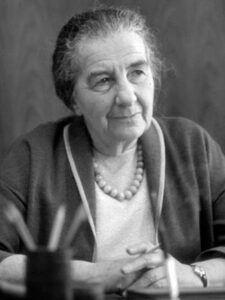
History of Jewish American Heritage Month
In 1979, President Carter proclaimed the first-ever Jewish American Heritage Week, which was designated as a week to recognize and honor the contributions of Jewish Americans to the United States. This proclamation aimed to celebrate Jewish American culture, history and achievements, as well as promote mutual understanding and respect among different communities. President Carter’s recognition of Jewish American heritage helped to highlight the valuable contributions of Jewish culture to the fabric of American society. Furthermore, it paved the way for the establishment of Jewish American Heritage Month, which continues to be celebrated annually in May across the United States. On April 20, 2006, President Bush issued the first proclamation designating May 2006 as Jewish American Heritage Month.
Jewish Americans and the Civil Rights Movement
Throughout history, Jewish Americans have played a significant role in the fight for civil rights in the United States. In 1909, Henry Moscowitz was a co-founder of the NAACP, along with W.E.B DuBois and other civil rights leaders. Kivie Kaplan served as the national president of the NAACP from 1966 to 1975, and Arnie Aronson worked with A. Philip Randolph and Roy Wilkins to establish the Leadership Conference. Jewish Philanthropist Julius Rosenwald contributed to the establishment of over 2,000 primary and secondary schools and 20 Black colleges, providing education to nearly 40 percent of Black people in the south during the era of “Rosenwald schools.”
During the Civil Rights Movement, Jewish activists were disproportionately involved in the struggle for equality. Jewish youth made up half of the participants in the Mississippi Freedom Summer in 1964, and leaders of the Reform Movement were arrested alongside Rev. Dr. Martin Luther King, Jr. in 1964 during a challenge to racial segregation in Florida. Rabbi Abraham Joshua Heschel famously marched arm in arm with Dr. King during the 1965 March on Selma.
The Civil Rights Act of 1964 and the Voting Rights Act of 1965, landmark legislation in the fight against discrimination, were drafted in the conference room of the Religious Action Center of Reform Judaism, which was home to the Leadership Conference for many years. The Jewish community has continued its support for civil rights laws addressing discrimination not only against women and people of color but also in the LGBTQ+ community and the disabled community, highlighting the ongoing commitment of Jewish Americans to the pursuit of equality and social justice.
Spotlight: Golda Meir

Golda Meir, born on May 3, 1898, In Kiev, Ukraine, was a prominent Israeli stateswoman and politician who played a significant role in the history of Israel. She served as the fourth Prime Minister of Israel from 1969 to 1974, becoming the first woman to hold the position in the country. Golda Meir’s family immigrated to the United States when she was a child, and she grew up in Milwaukee, Wisconsin. She later moved to Palestine in 1921, where she became involved in Zionist activities and the development of the Jewish community.
Meir was a founding member of the Mapai party, which later became part of the Labor Party in Israel. She held various positions in the government, including Minister of Labor and Foreign Minister, before becoming Prime Minister in 1969. During her time in office, Meir faced significant challenges, including the Yom Kippur War in 1973, when Israel was attacked by neighboring Arab countries. She took a tough stance in defense of Israel’s security, and her leadership during the war is considered a defining moment in her political career.
Golda Meir’s tenure as Prime Minister was marked by her unwavering commitment to the security and welfare of Israel. She was known for her strong leadership style, pragmatic approach to politics and dedication to social justice issues. However, her government was criticized for its handling of the intelligence failures leading up to the Yom Kippur War, and she resigned as Prime Minister in 1974.
Golda Meir passed away on December 8, 1978, but her legacy continues to inspire and influence Israeli politics to this day. She is remembered as a pioneering female leader and a significant figure in the history of the State of Israel, who played a crucial role in shaping its early years as a nation.
